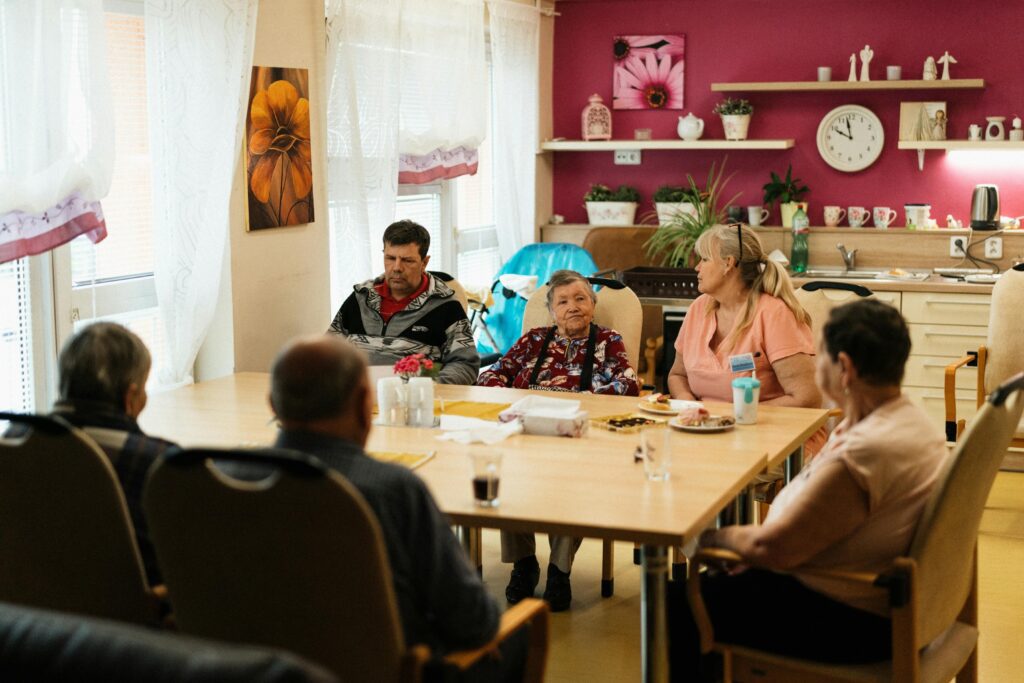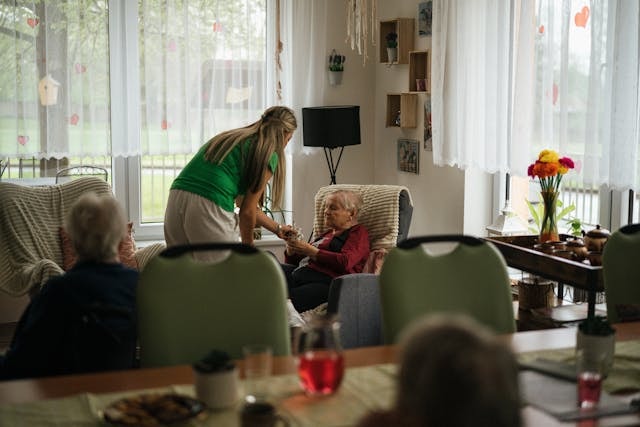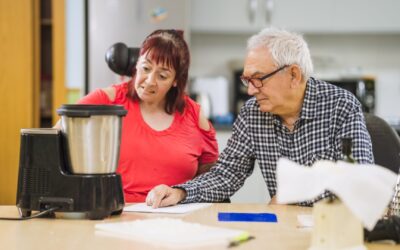Curious about what is Supported Independent Living (SIL)? And how it can enhance independence for you or a loved one? In this comprehensive guide, we’ll explore everything you need to know about SIL, from its basics to how to access it and the benefits it offers. We will also cover how supported independent living funding works within the NDIS scheme. Let’s dive in and discover how SIL can transform lives!
What is Supported Independent Living (SIL)?

Understanding SIL
Supported Independent Living (SIL) is a tailored support service designed for people with disabilities, aimed at enabling them to live as independently as possible. SIL provides assistance with daily tasks, household chores, social activities, and other necessary supports, including specialist disability accommodation, while promoting autonomy and self-reliance.
SIL supports include various types of assistance tailored to individual needs, such as 24/7 on-call assistance and direct liaison with the NDIA. It’s about empowering individuals to lead fulfilling lives while ensuring they receive the assistance they need.
Why SIL Matters
Empowering Independence
SIL plays a crucial role for disability and in fostering independence and self-confidence. By offering personalised support that respects individual choices and preferences, SIL allows people with disabilities to maintain control over their lives and make informed decisions.
Additionally, SIL creates a supportive environment that fosters independence and personal growth.
Enhancing Quality of Life
Quality of daily life is significantly improved through SIL by enhancing social inclusion, skill development, and community engagement.
By addressing individual needs and aspirations, SIL helps individuals achieve personal goals, achieve more and participate actively in their communities.
Eligibility and Accessing SIL

Who Can Access SIL?
Access to receive supported housing and independent living services under the National Disability Insurance Scheme (NDIS) is available for individuals with significant and permanent disabilities that impact their daily living activities.
Eligibility requires a thorough assessment of support needs and inclusion of SIL funding in an NDIS plan.
Applying for SIL Funding
Applying for supported independent living funding involves a comprehensive assessment conducted by the NDIS to determine the level of support required. A support coordinator plays a crucial role in navigating this application process, liaising with allied health and service providers, and ensuring all necessary approvals are obtained.
Once approved, SIL funding supports the development and implementation of a personalised care plan tailored to individual needs and goals.
Types of SIL Arrangements

Shared Living
Shared living arrangements, a type of Supported Independent Living (SIL) setting, involve individuals with disabilities living together in a shared home environment, where they receive support tailored to their collective needs. This a shared living arrangement promotes companionship, cost-sharing, and a supportive community environment for participants.
Individual Living
Individual living arrangements, including the option to have your own home, offer privacy and independence, with personalised support designed to meet participants’ specific preferences and requirements.
This option is ideal for individuals and families who prefer a more private living space while still benefiting from necessary supports.
Group Home Settings
Group homes provide a community-oriented, independent living environment with onsite support staff available around-the-clock. This setting is suitable for individuals with very high support needs, requiring higher levels of support and seeking social interaction within a structured environment.
Services Provided Under SIL
Personal Care and Daily Living Support
SIL includes assistance with personal care tasks such as bathing, dressing, grooming, and managing medication. Additionally, support is provided for household chores, meal preparation, and other daily living activities, ensuring individuals can maintain their independence in a safe and comfortable home environment.
SIL can also cater to individuals with high support needs, ensuring their living environment is designed to meet these specific requirements.
Social and Recreational Support
Support extends to social and recreational activities, enabling individuals to participate in community events paid activities, pursue hobbies, and maintain social connections. This support promotes social inclusion and enhances overall wellbeing.
How SIL Works

Role of Support Workers
Support workers play a crucial role in SIL by delivering personalised support services according to each individual’s care plan.
They assist with daily living tasks, provide emotional support, and have skills to facilitate community engagement to promote independence and wellbeing.
SDA home funding works together with SIL funding to provide comprehensive support, giving individuals more choice and control over where they live and the services they use within SDA homes.
Personalised Care Plans
Care plans are developed collaboratively with the individual, their family, and support professionals to outline specific support needs and goals.
These plans are regularly reviewed and adjusted to accommodate changes in circumstances and ensure ongoing effectiveness.
Benefits of SIL

Independence and Confidence
SIL empowers individuals to live independently by providing the necessary support and resources to manage daily tasks and make choices that enhance their quality of life.
This autonomy fosters confidence and self-esteem, empowering NDIS participants and individuals to live as independently and pursue their aspirations and goals. Individuals who receive supported independent living through SDA funding are expected to enjoy better lives.
Health and Wellbeing
Support services that support people under SIL contribute to improved health outcomes by ensuring individuals receive adequate care and assistance with medical appointments, dietary needs, and physical activities.
This holistic approach promotes overall wellbeing and enhances quality of life.
Challenges and Considerations

Transition Challenges
Transitioning to SIL permanent home may present challenges such as adjusting to a new living environment, establishing routines, and integrating into a supportive community.
It’s essential to approach this transition with patience and support from family, friends, and service providers.
Financial Planning
Budgeting for SIL involves careful consideration of funding sources, service costs, and ongoing support needs.
NDIS funding supports SIL services, but individuals may also explore additional funding options to cover related expenses and ensure financial stability.
Choosing the Right SIL Provider

Selecting a Provider
Choosing a reputable SIL provider requires research into their experience, service offerings, staff qualifications, and client feedback.
It’s essential to find a provider that aligns with individual preferences and can deliver high-quality, personalised support services.
Provider-Client Relationship
A positive relationship with the SIL support provider is essential for effective communication, collaboration, and mutual respect. Open dialogue ensures that support services meet individual needs and preferences, fostering trust and confidence in the care provided.
Re.Connect Support Services: Your SIL Partner
Caption: Discover SIL with Re.Connect Support Services
At Re.Connect Support Services, we’re committed to empowering individuals with disabilities through personalised Supported Independent Living (SIL) services.
Whether you require assistance with daily living tasks, social activities, or community engagement, our dedicated team is here to support your journey towards independence and wellbeing.
Contact us today to learn more about how we can assist you in achieving your goals and enhancing your quality of life. We have some upcoming vacancies on our properties.
FAQs About SIL

Common Questions
What is SIL? SIL provides tailored support for people with disabilities to live independently.
How do I apply for SIL funding? Eligibility requires a comprehensive needs assessment and inclusion in an NDIS plan.
What supports does SIL include? SIL covers personal care, household tasks, transport assistance, and social activities.
Conclusion
Supported Independent Living (SIL) is more than just a support service; it’s a pathway to greater independence, enhanced quality of life, and active community participation for individuals with disabilities. By understanding SIL and its benefits, individuals can make informed decisions about their support needs and embrace opportunities for personal growth and development.


